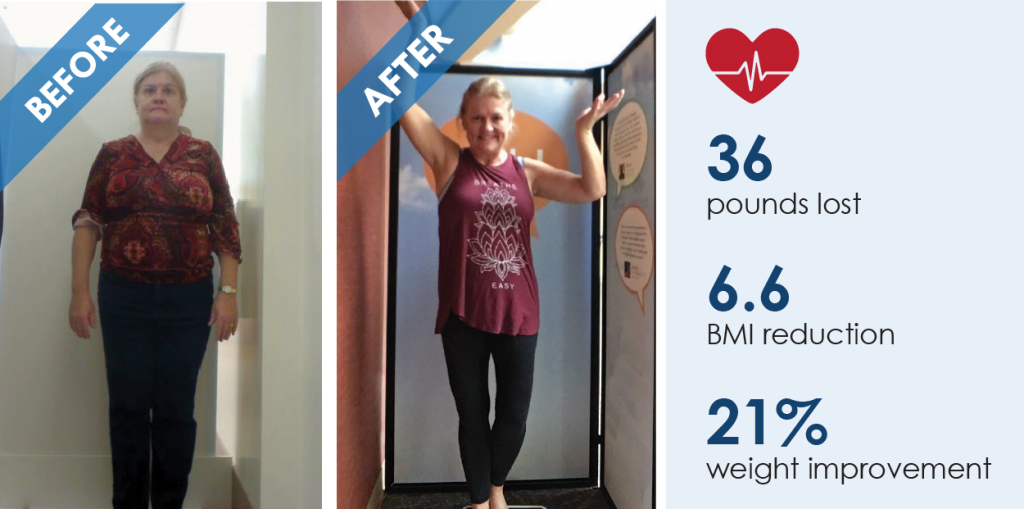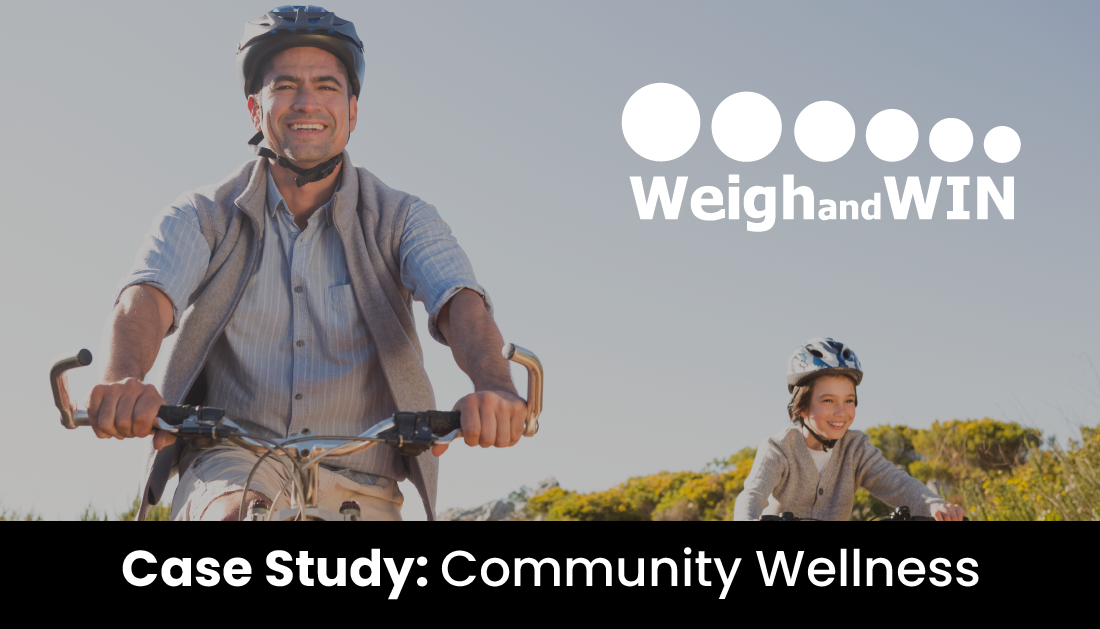Funding Partner: Payor and Provider
Participant Profile: 32 average starting BMI, 43 average age
Partnerships: Libraries, Retailers, Recreation Centers, Cities and Municipalities, Clinics, Employers
Location: Colorado
Objectives
- Implement scalable, effective community-focused behavior change program.
- Improve obesity rates with community members across Colorado. (JGIM, March 2017)
- Reduce health care costs for payers. (Preventive Medicine, October 2017)
Key Outcomes

Engagement
Over 106,000 members enrolled statewide

Outcomes
71% of our members are losing weight

Long Term Results
Average weight loss duration is 1.7 years.

Health Improvement
34% of our members achieved a 5% or greater weight improvement.
Success

Linda
“I was overweight, prediabetic, and hypertensive. I needed to change. The daily emails provided me accountability and encouragement. I have so much energy now. My last screening for diabetes is normal, and my blood pressure medication was cut in half.”

Business Impact
As the Vice President of Government, External Relations and Research at Kaiser Permanente for 13 years, I worked very closely with incentaHEALTH to deliver the Weigh and Win program, a technology-enabled solution to our community health crisis: obesity. We reached substantial milestones in addressing the health of our State, including enrolling over 100,000 Coloradans and delivering evidence-based programming statewide. The results include over 350,000 pounds lost and evidence of long-term, durable weight loss.
Jandel T. Allen-Davis, MD
The program not only aims to address behavior change practices in our community members, but it also encompasses mind, body, and spirit—a shared priority for both Kaiser Permanente and incentaHEALTH. The community-facing kiosks make it easier for participants to weigh in regularly, making the right choice, the easy choice.
As humans, we are all wired for connection. Weigh and Win incorporates this need for human connection by integrating the platform with social media and incorporating team challenges to inspire shared behavior change, with the ultimate goal of achieving long term weight loss.
By using behavioral economics, the program demonstrates the ability for health systems and other sponsors to deliver high-value care through cost effective, scalable programming to achieve measurable health outcomes. Through partnership with community organizations, we hope that the success of the Weigh and Win program in Colorado can be a model for other communities across the nation looking to positively impact the health of their residents.
President and CEO, Craig Hospital




